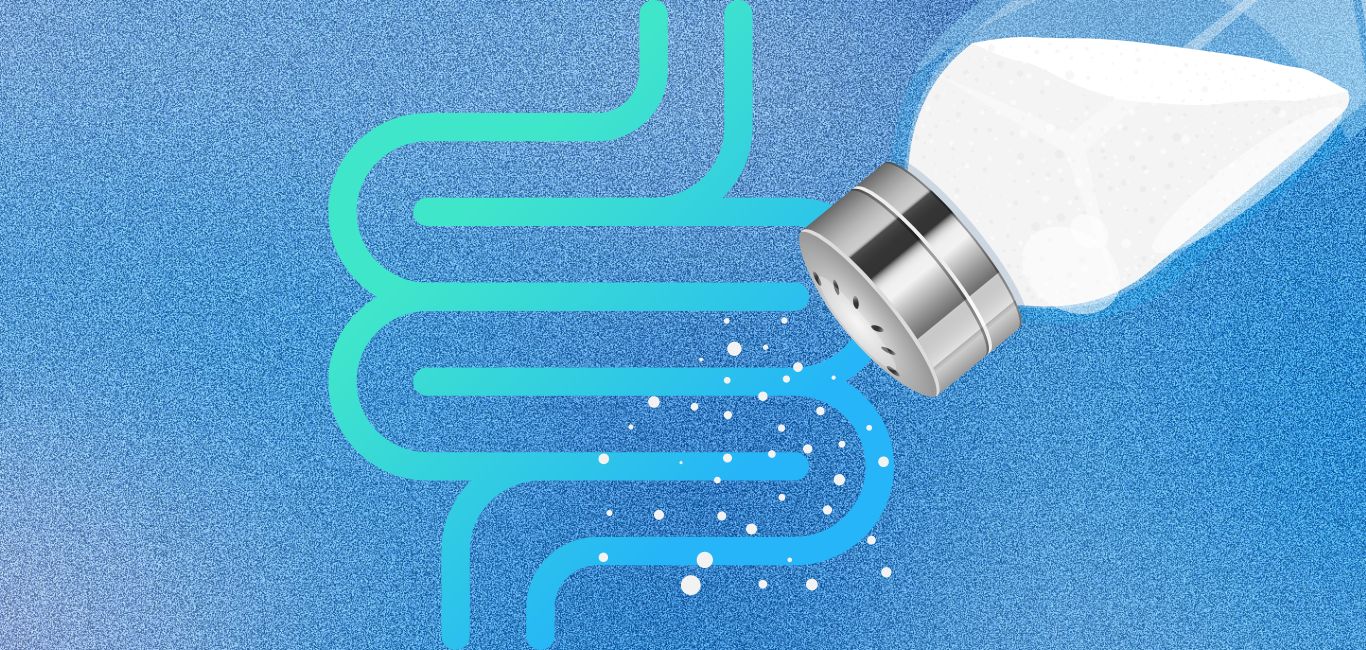
A higher salt intake has long been associated with an increased risk of developing lifestyle disorders. And diets that are high in salt, such as the Western diet, are known to be associated with a higher incidence of obesity.
While one explanation for this has been that excess salt intake causes a reduction in diet-induced thermogenesis – the energy expended as heat by the body after consuming food – researchers may have found another reason for salt’s adverse effect on health.
Researchers at the Aix Marseille University in France have studied the effect of higher salt intake on the gut microbiome and in turn metabolic health. Their investigation has shed light on the role of a specific bacteria Akkermansia muciniphila that is affected by salt.
Known for its potential as a probiotic candidate, Akkermansia muciniphila colonises the mucosal layer of the intestines. The Aix Marseille research revealed that high salt levels can lead to a depletion of this bacteria, potentially compromising overall gut health and metabolic function.
Their findings suggest that high salt intake may independently increase the risk of obesity, separate from its association with energy intake. Moreover, excessive salt that reaches the colon can disrupt the balance of the gut microbiota, selectively enriching certain bacteria while reducing the overall diversity of the microbiome.
“In terms of gut health, diversity plays a vital role, and it is often measured using a diversity index rather than focusing solely on the richness of specific bacteria,” says Dr Madhur Motwani, founding director at Proxi Farma, Venture Center, Pune a company focused on medical nutrition.
The salt-obesity link
Previous research done by scientists at the Queen Mary University of London and the School of Public Health at Peking University in Beijing revealed a significant association between higher salt intake and an increased risk of obesity. Specifically, a daily increase of 1 gram in salt intake was found to be linked to a higher risk of obesity in both children and adults.
The researchers analysed data from the UK National Diet and Nutrition Survey conducted between 2008-2009 and 2011-2012. The study specifically included 458 children and 785 adults who had completed 24-hour urine collections. And the associations remained significant even after adjusting for various factors such as age, sex, ethnic group, household income, physical activity, energy intake, and diet misreporting.
Additionally, the study found that higher salt intake was significantly associated with higher body fat mass in both children and adults, even after adjusting for age, sex, ethnic group, and energy intake. This suggests that reducing salt intake could potentially help in the prevention of obesity, which is a major risk factor for cardiovascular diseases.
While the research suggests a strong link between high salt intake and obesity, further investigations are needed to determine if a high salt diet, combined with other components commonly found in processed foods, consistently leads to gut dysbiosis.
How much salt is too much?
Dr Sik Yu (Stephanie) So from Baylor College of Medicine in Houston, Texas, United States says there is a need for additional research in understanding salt intake and the incidence of obesity. However, avoiding processed foods can help lower sodium intake, considering that many processed foods have a high amount of salt in them.
“The World Health Organization (WHO) recommends an intake of less than 5 gm/day of salt, or 2 gm/day of sodium, while the USDA recommends that adults limit their sodium intake to less than 2,300 mg a day,” says Dr Yu.
Dr Motwani suggests a simple way to determine how much salt to consume in relation to one’s calorie intake. “It states that the amount of sodium (salt) consumed in milligrams should be less than the number of calories consumed,” he says.
For example, if someone is following a 2,000 or 2,800-calorie diet, they should aim to consume less than 2,000 or 2,800 milligrams of sodium, respectively. This approach can promote mindful eating and could help prevent excessive salt intake, which is associated with various health risks, including an increased risk of obesity.
The right diet
Apart from just monitoring salt intake levels for managing weight or tackling obesity, one recommendation is to increase the consumption of fresh vegetables and fruits. These foods are rich in essential nutrients, fibre, and antioxidants, which support overall health and aid in weight management.
“One way to incorporate a variety of vegetables into your diet is by preparing smoothies. Unlike juicing, which removes the fibre, smoothies are made by blending vegetables and fruits with water, milk, or yoghurt, creating a puree that retains all the ingredients and their beneficial fibre content,” adds Dr Motwani.
“The key is to aim for diversity by including at least 25-30 different fruits and vegetables in your diet each week,” he adds.
With research highlighting the detrimental effects of excessive salt intake on gut health and its potential contribution to obesity, it is crucial to follow recommended salt and sodium intake guidelines. It is also important to prioritise our gut health and make mindful dietary choices to safeguard our well-being and reduce the prevalence of obesity-related health issues.


















One Response
Very informative article…hope it helps me in improving my gut health which is always topsy-turvy